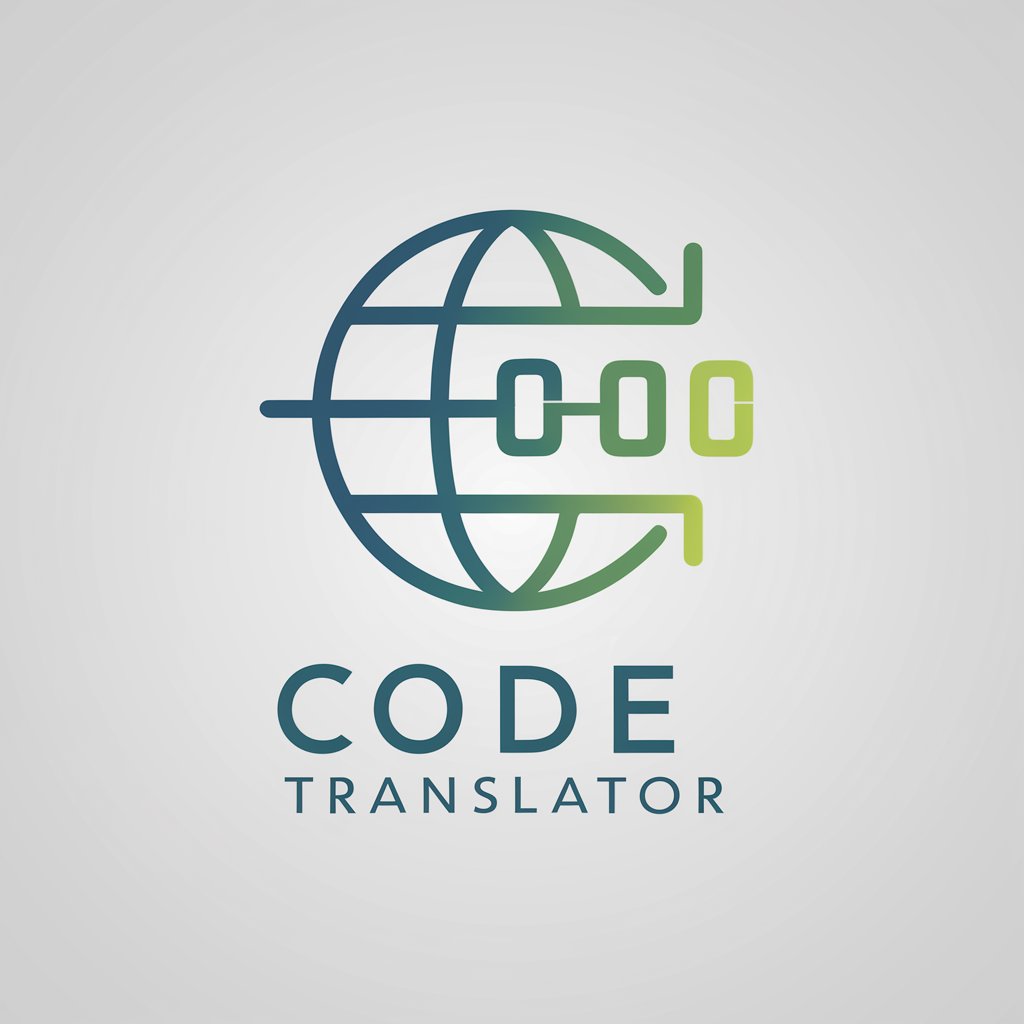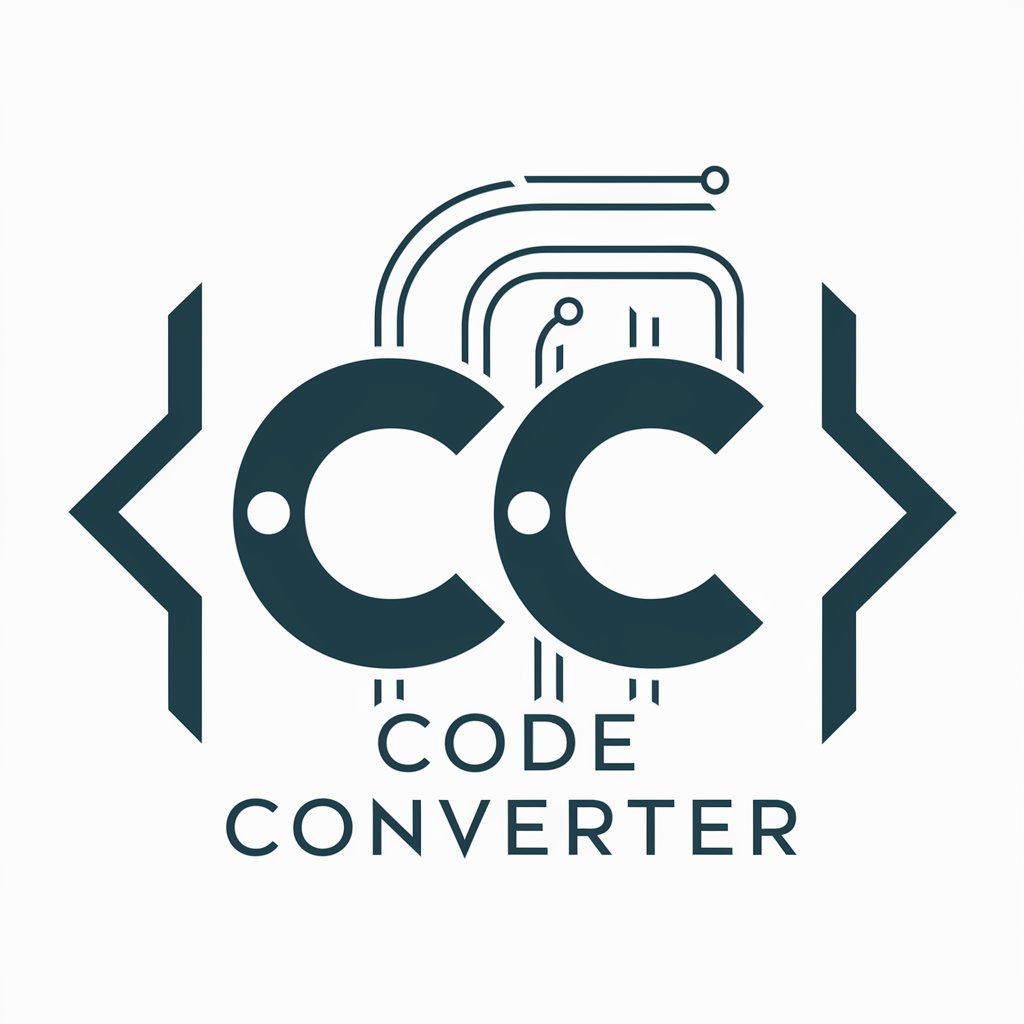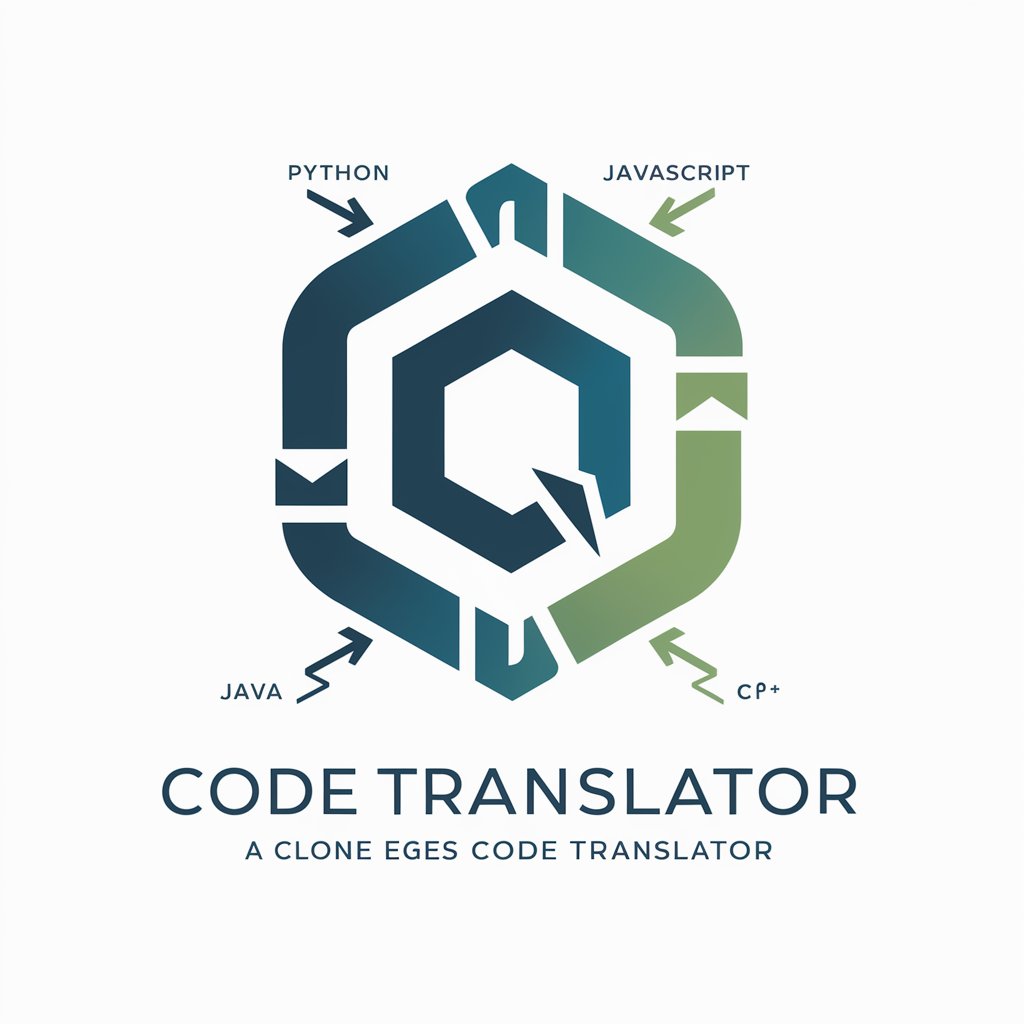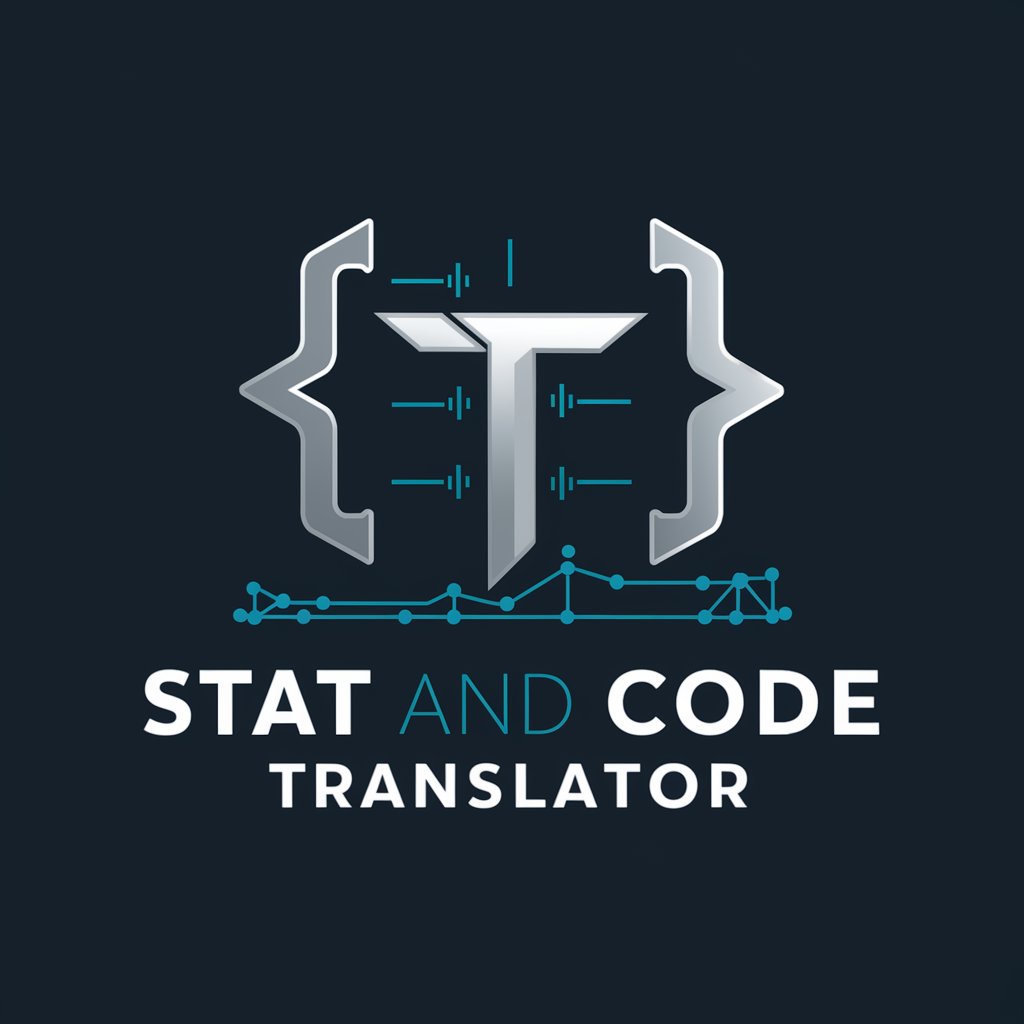
Multilingual Code Translator - Multilingual Variable Translation
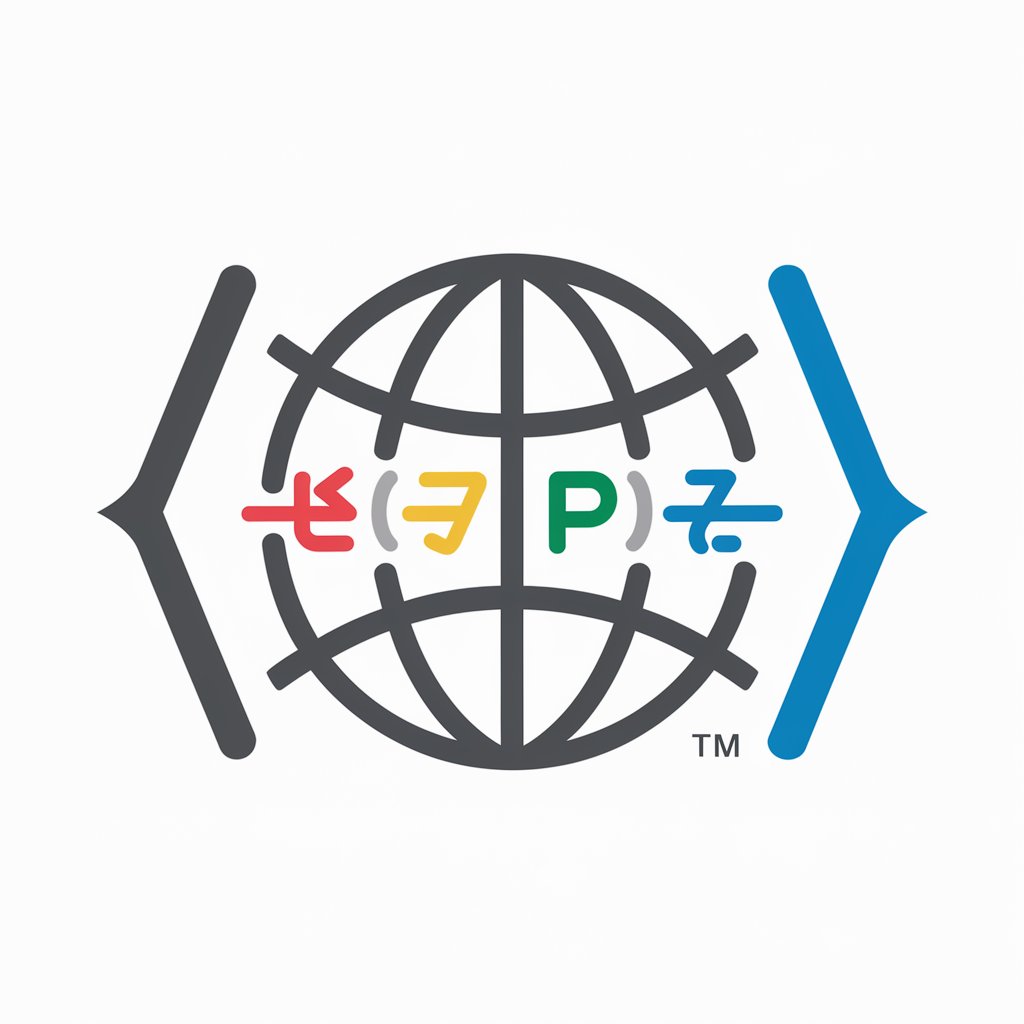
Welcome! I translate words into programming variable names dynamically.
AI-powered multilingual code translation
Translate the following English terms into programming variable names:
Provide variable name translations for these Japanese words:
Generate camelCase, snake_case, and kebab-case variable names for the given terms:
Explain the detailed process of converting these phrases into programming variable names:
Get Embed Code
Overview of Multilingual Code Translator
The Multilingual Code Translator is designed to bridge the gap between natural languages and programming by converting words or phrases from any language into appropriate programming variable names. This tool dynamically adapts its responses based on the input language, providing a primary variable name in English along with additional suggestions in various formats like camelCase, snake_case, and kebab-case, in both uppercase and lowercase options. It aims to simplify the coding process for developers working in multilingual environments or with variable naming conventions that reflect the domain-specific terminology of their projects. For example, translating 'user profile' from English into userProfile (camelCase), user_profile (snake_case), and user-profile (kebab-case) offers versatile naming options for programming variables. Powered by ChatGPT-4o。

Core Functions of Multilingual Code Translator
Language-to-Variable Name Translation
Example
Translating '速度制限' (Japanese for 'speed limit') into 'speedLimit' (camelCase), 'speed_limit' (snake_case), and 'speed-limit' (kebab-case).
Scenario
Useful in international development teams where the domain language is not English, ensuring code readability and maintainability across diverse team members.
Format Variation Suggestions
Example
Providing 'maximumHeight' in camelCase, 'MaximumHeight' in PascalCase, 'maximum_height' in snake_case, and 'maximum-height' in kebab-case for 'maximum height'.
Scenario
Assists in adhering to different coding standards and conventions, especially in projects where multiple programming languages are used and each may have its own naming conventions.
Adaptation to Multilingual Inputs
Example
Accepting inputs in languages such as Spanish, translating 'vida útil' (useful life) to 'usefulLife', 'useful_life', and 'useful-life'.
Scenario
Enables developers working on localized software or international projects to easily generate code identifiers that are consistent with local terminology.
Target User Groups for Multilingual Code Translator
International Development Teams
Teams comprised of members from different linguistic backgrounds, working on the same project. The translator helps maintain a unified coding style and enhances code readability and maintainability.
Educators and Students
In educational settings, particularly in computer science and programming courses, where students are learning coding in a language that is not their first. It helps them understand coding conventions and practices.
Solo Developers Working on International Projects
Individual developers creating software for international use or localized applications. The translator aids in creating code that is easily understandable by future developers who might come from different cultural or linguistic backgrounds.

How to Use Multilingual Code Translator
Start Free Trial
Access yeschat.ai to explore Multilingual Code Translator without the need for signing up or subscribing to ChatGPT Plus.
Select Language
Choose the language you will input from the available options to ensure accurate variable name translations.
Enter Words or Phrases
Type the words or phrases you want to translate into programming variable names in the designated input field.
Choose Naming Convention
Select your preferred naming convention (e.g., camelCase, snake_case) for the output variable names.
Review and Use
Review the generated variable names, including the primary name and alternative suggestions, then integrate them into your code as needed.
Try other advanced and practical GPTs
Sherlock Report
Unveil the Hidden, Predict the Future

Create Grasshopper
Empowering design through AI-driven coding.

Auto Discussion
Explore Topics with AI-Powered Insights

Pesquisas econômicas mensais do IBGE
Empowering Decisions with AI-Powered Economic Insights

stratégie numérique
Empowering Your Digital Success with AI

LP調査
Unlock the power of AI-driven landing page insights.

DynamoDB Single Table Schema Designer
AI-powered DynamoDB Schema Design

Pitch Design Expert
Empower Your Pitch with AI Insight

Cosmic Horoscope Oracle
Navigate life's journey with cosmic wisdom

広報・PRの家庭教師AIまゆみ先生
Empowering PR with AI Insights

Satoshi Nakamoto
Unlocking the Mysteries of Bitcoin

BibTeX Builder
Automating your citation process with AI

FAQs about Multilingual Code Translator
What languages does Multilingual Code Translator support?
It supports a wide range of languages for input, allowing users to translate words or phrases from their native language into programming variable names.
Can I customize the output naming conventions?
Yes, you can choose from various naming conventions such as camelCase, snake_case, and kebab-case for the translated variable names.
Is there a limit to the number of translations I can perform?
No, there is no hard limit on the number of translations. However, usage may be subject to fair use policies to ensure quality service for all users.
How accurate are the translations?
Translations are highly accurate, leveraging advanced AI technology. However, the context of the input can affect precision.
Can this tool help in learning programming?
Absolutely, it can be a valuable resource for beginners to understand naming conventions and improve their coding practices by translating variable names into their native language.
